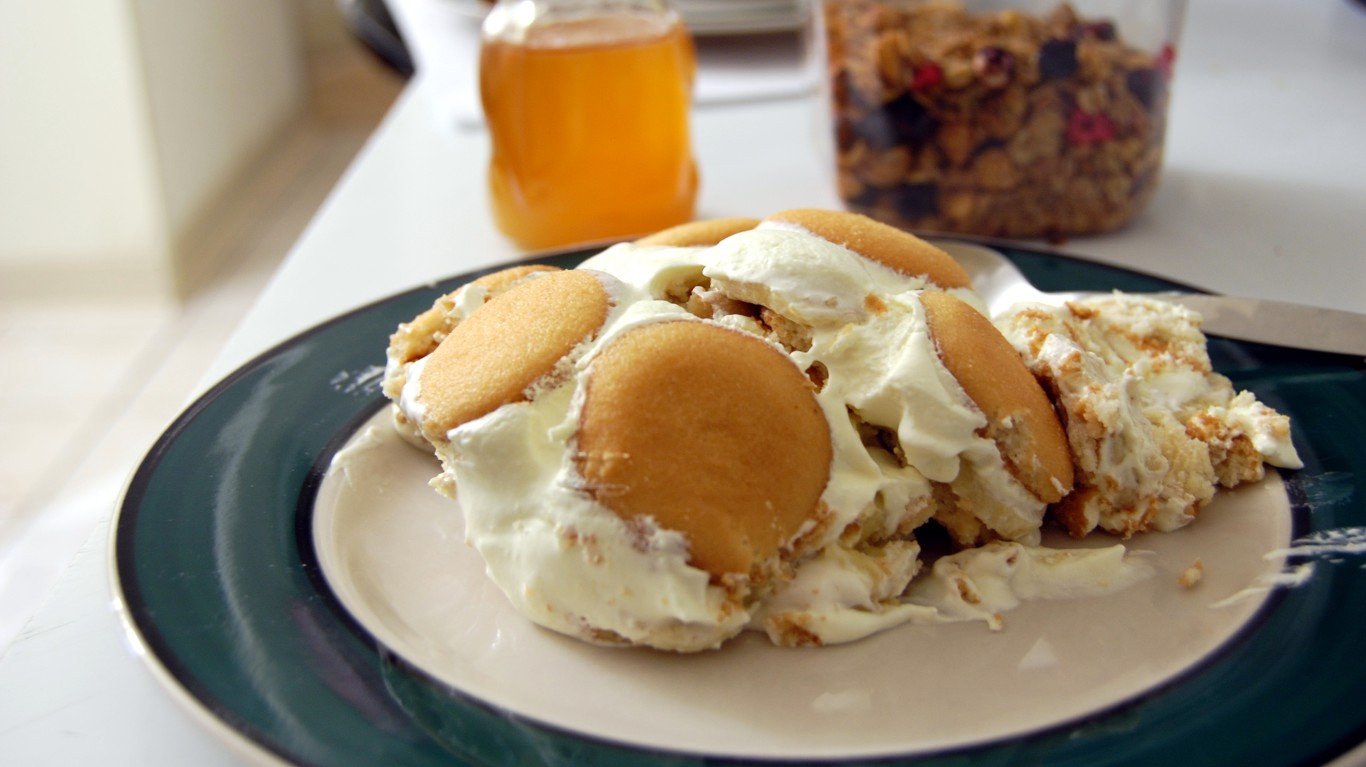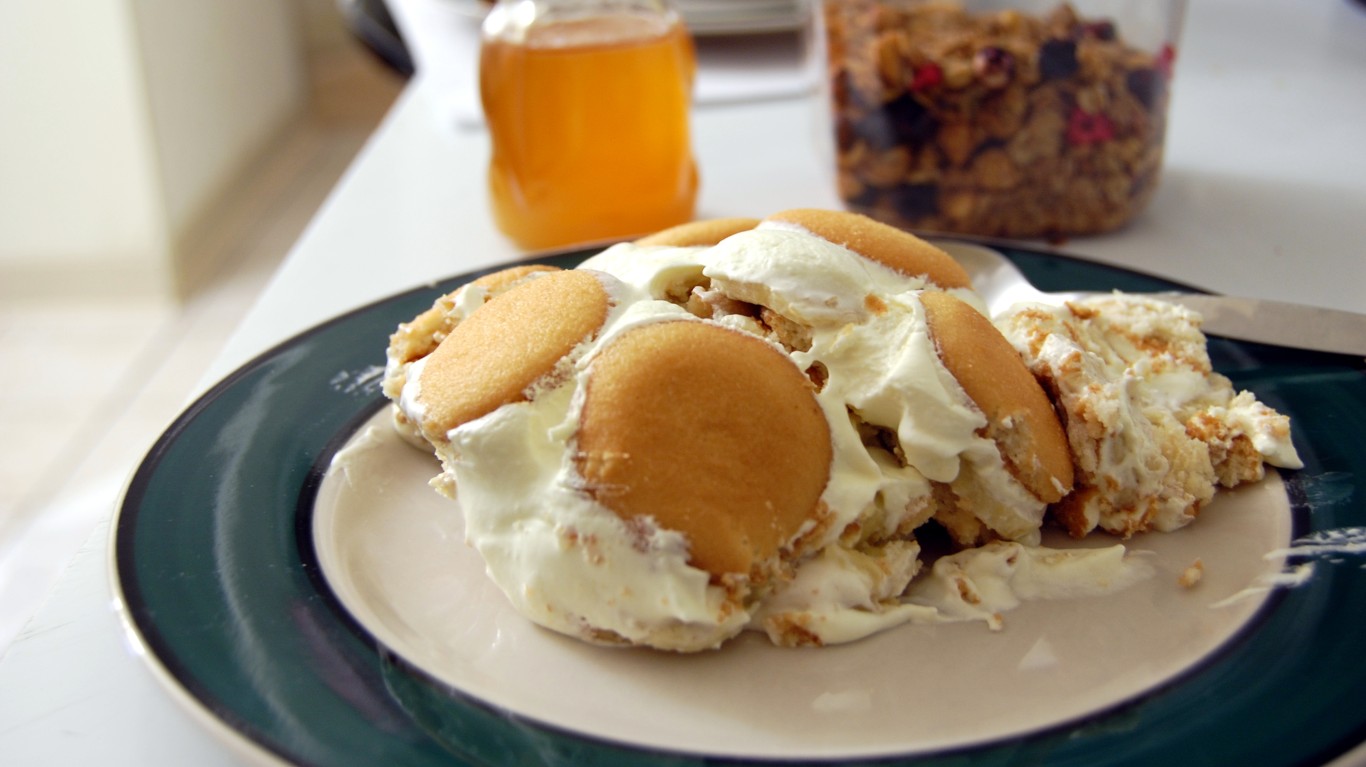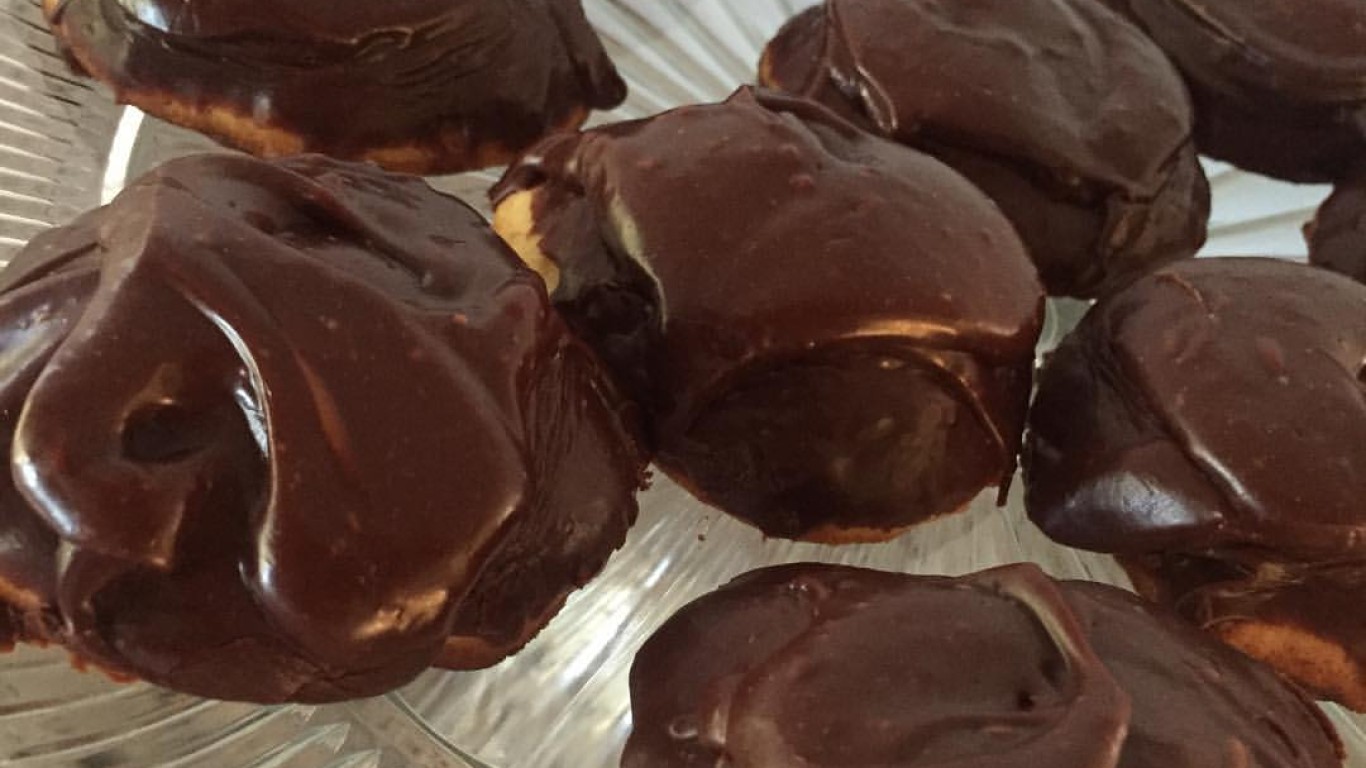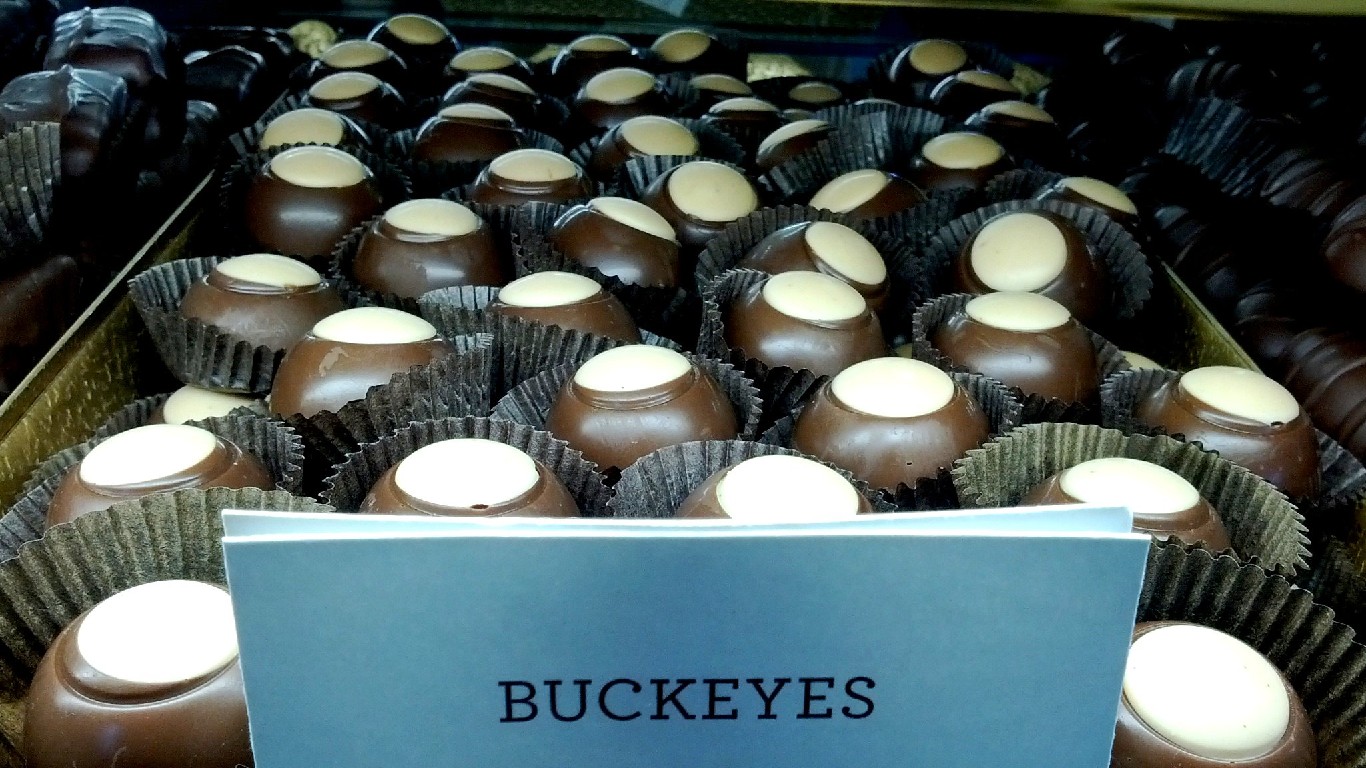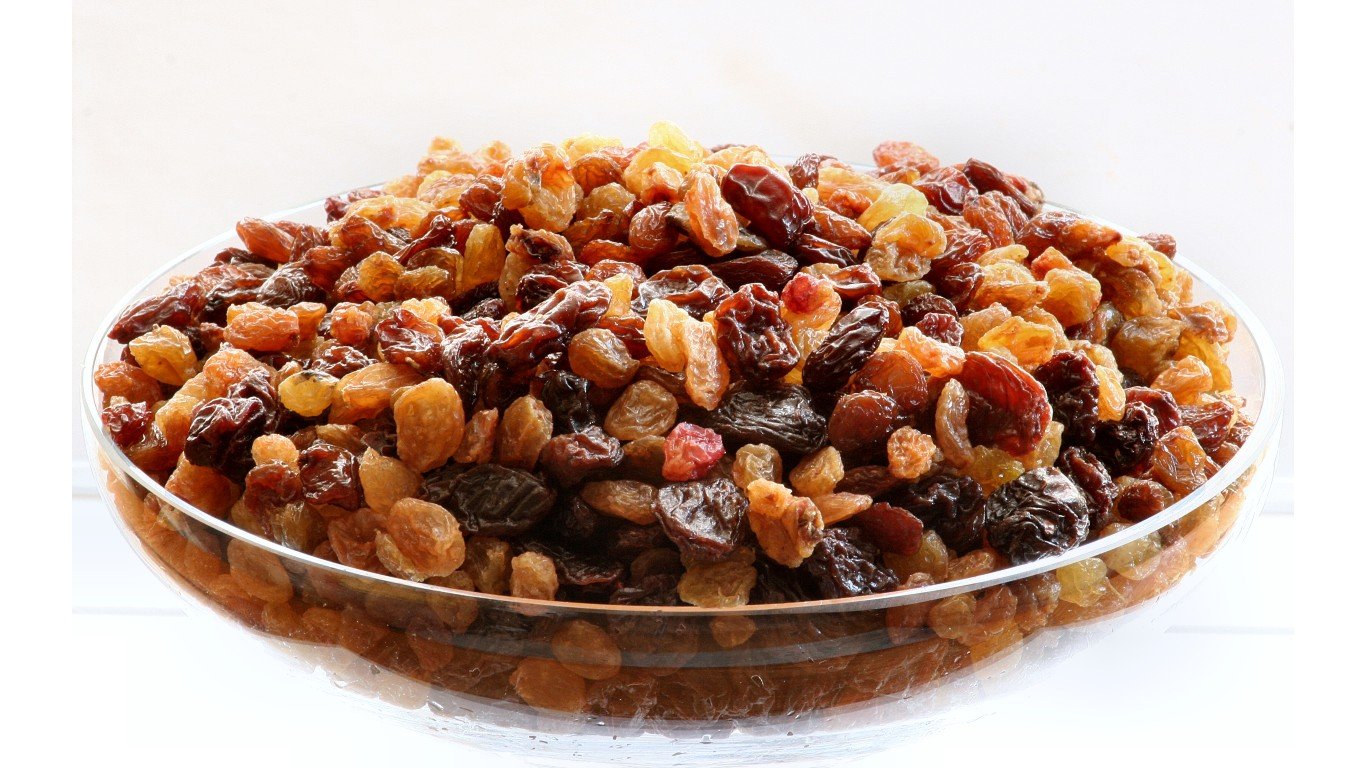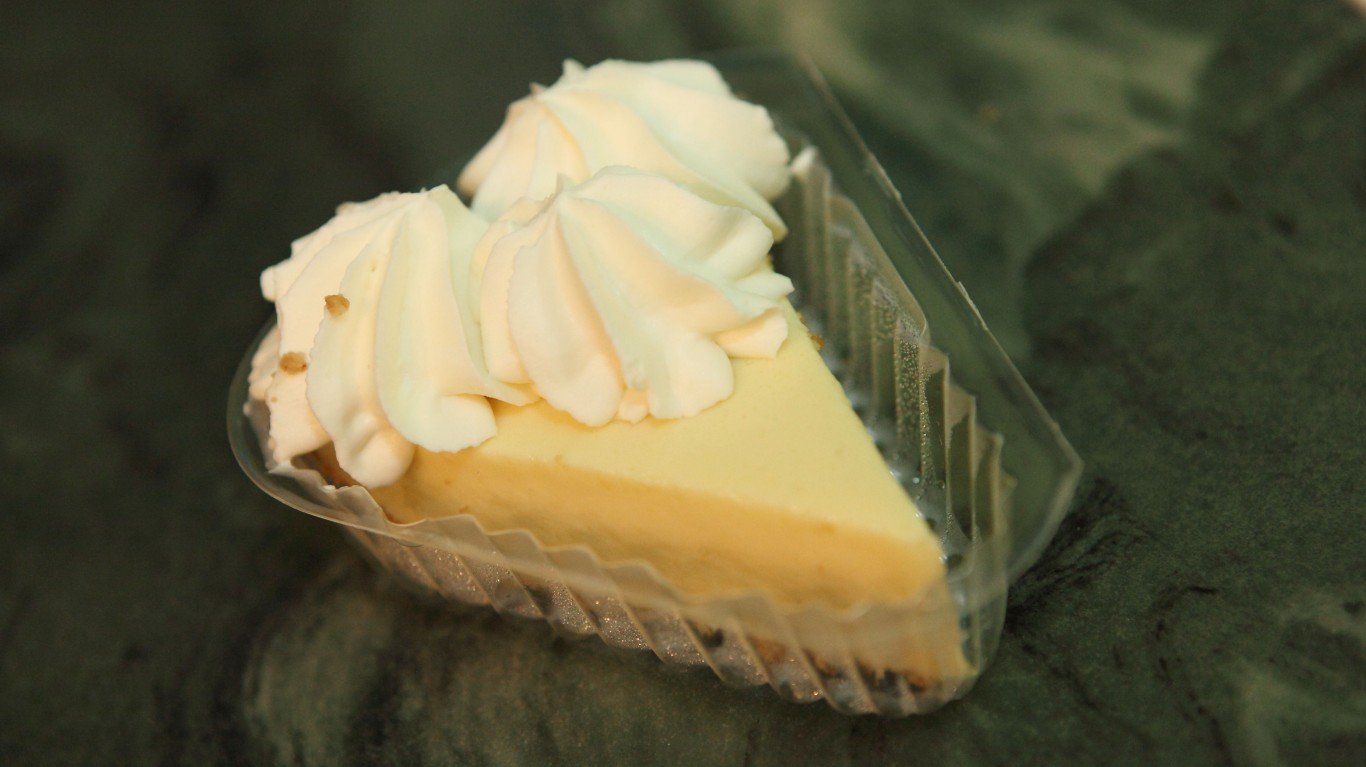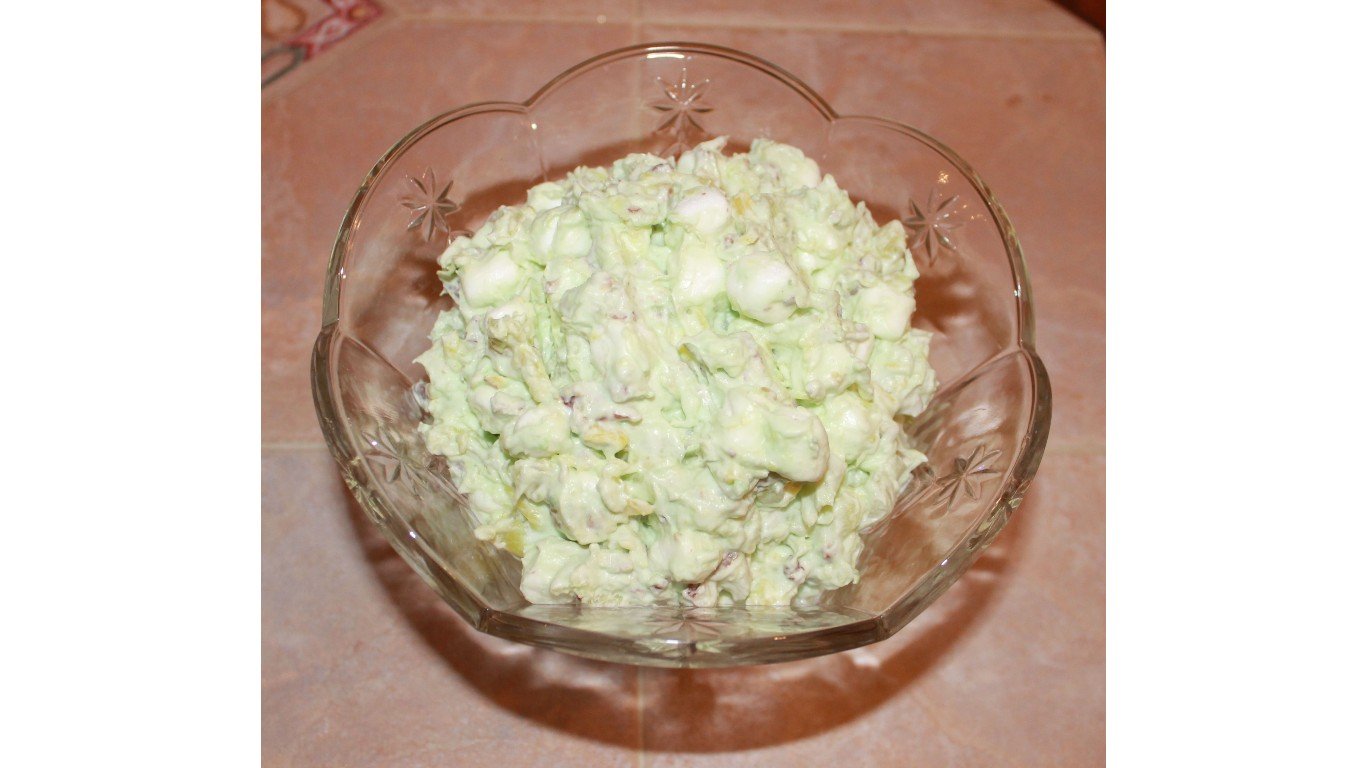Americans have the highest sugar consumption in the world, according to the market research company Euromonitor. The average American consumes over 126 grams of sugar per day – over two and a half times the limit recommended by the World Health Organization. (Take a look at America’s least healthy cities.)
A common complaint from foreign visitors is that American desserts are way too sweet. And this is proven true by our dessert recipes. American cakes and frostings tend to contain more sugar than European cakes do, while Asian desserts are even less sweet and often feature hearty ingredients like beans and yams.
To determine desserts we only eat in America, 24/7 Tempo referred to culinary websites including Taste Atlas, and Eat This. Some of these desserts, like pecan pie, are cloyingly sweet. And like pecan pie, many of them are uniquely American because of their use of ingredients that are unique to a particular bioregion in the U.S.
Many of them were invented by immigrants or are spin-offs of traditional recipes from other countries, but have become inextricably linked to the American culinary landscape and are made differently here than anywhere else. A few became popular in the 1950s and are still commonly seen at family gatherings. (Read about the biggest food fads of the past 50 years.)
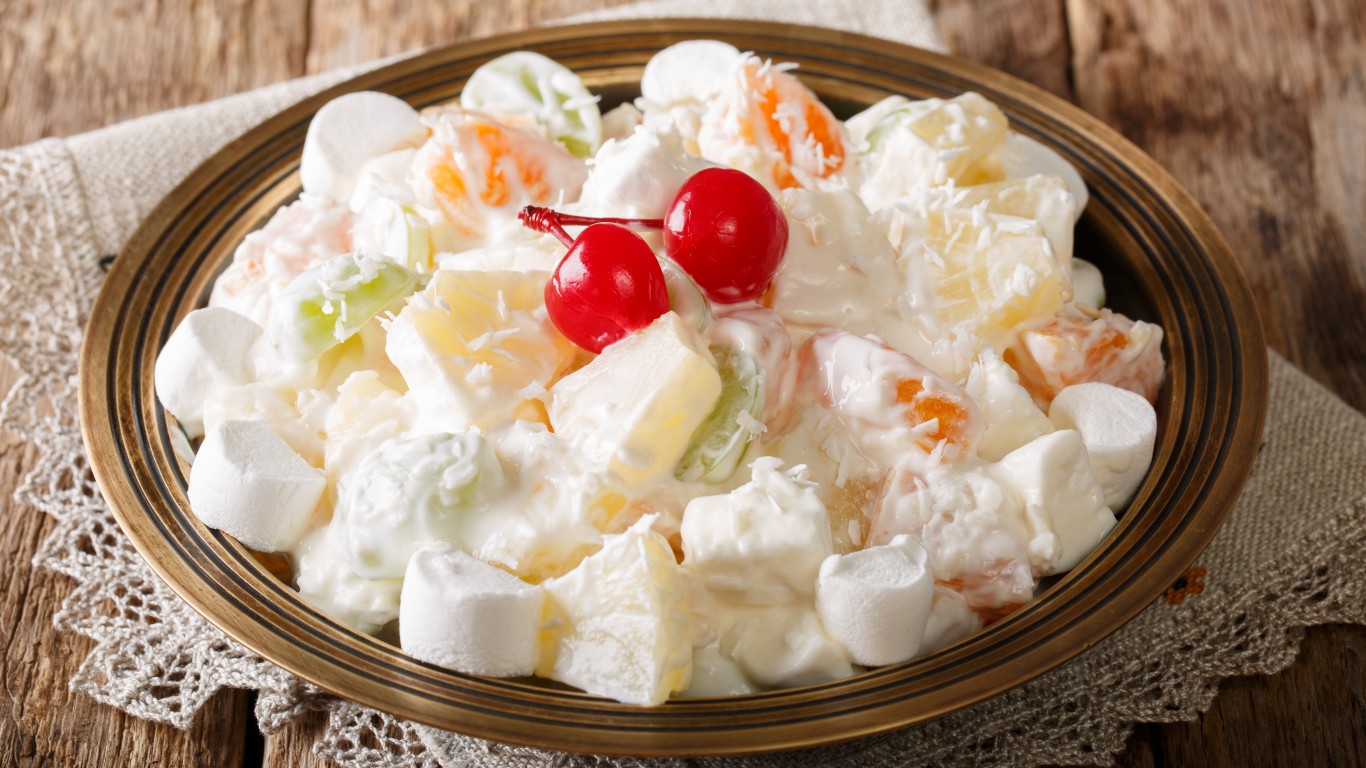
Ambrosia Salad
A relic from the days of dessert salads, ambrosia is a Southern holiday tradition most often made from whipped topping, mandarin orange slices, pineapple chunks, maraschino cherries, shredded coconut, and mini marshmallows. Although it may finally be falling out of fashion, this fluffy concoction brings back memories for those who grew up eating it at every family gathering.
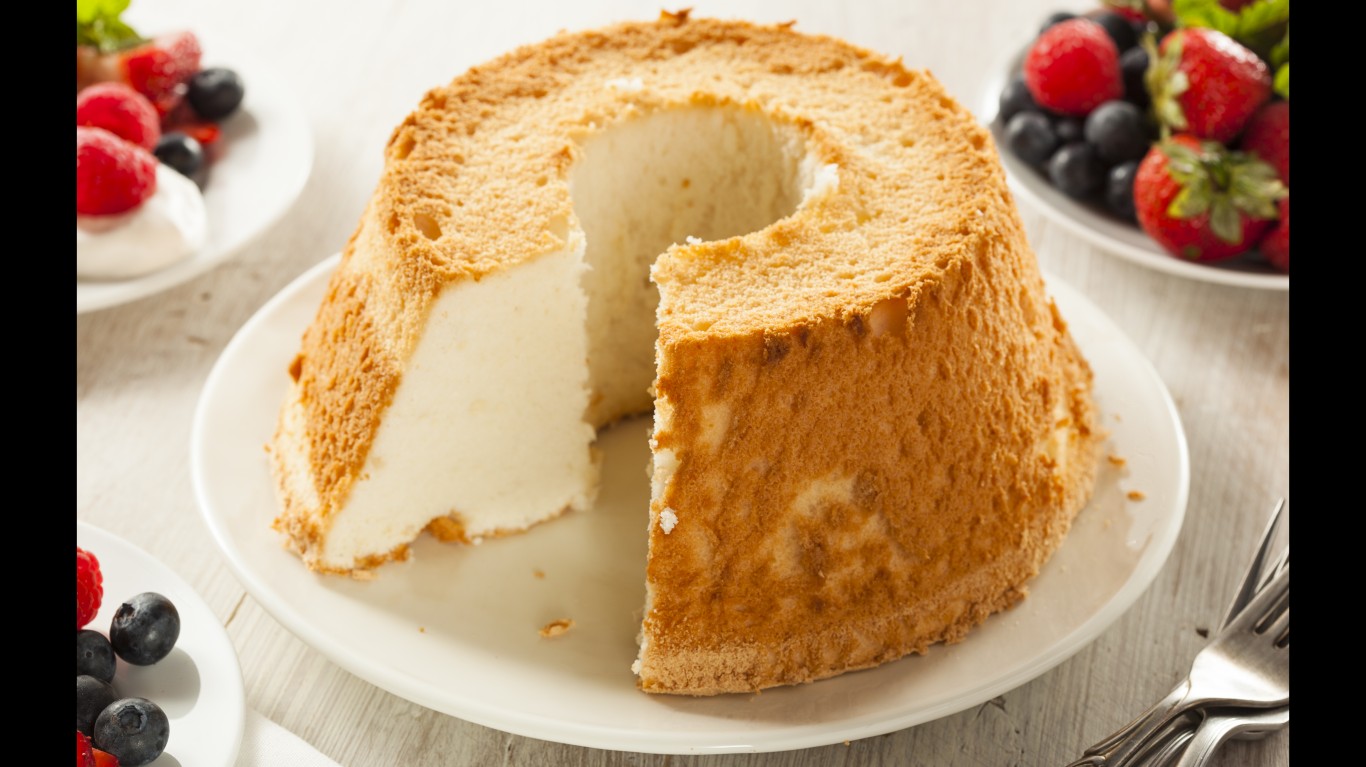
Angel Food Cake
A sponge cake made largely from whipped egg whites with the yolks omitted entirely, this airy cake is popular for being low in fat. Although its origins are murky, it gained widespread popularity in the U.S. with the advent of the hand-crank rotary egg beater in the late 19th century.
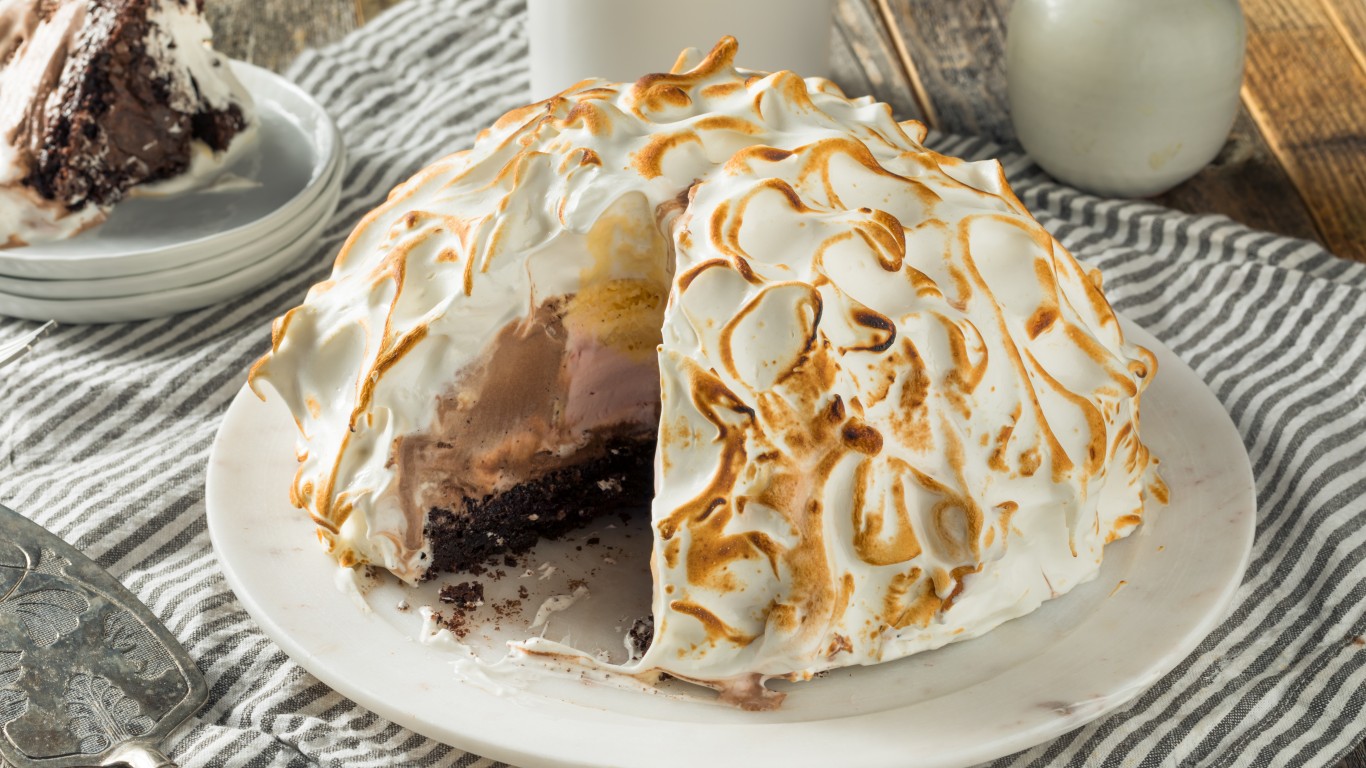
Baked Alaska
This iconic dessert featuring ice cream atop a sponge cake, all covered in toasted meringue, was originally invented by French Chef Charles Ranhofer at the famous Delmonico’s restaurant in New York. To commemorate the U.S. purchase of Alaska from Russia, he called the dessert “Alaska, Florida,” and incorporated walnut spice cake with banana ice cream.
Banana Pudding
This take on an English trifle is uniquely American. It gained popularity when bananas became ubiquitous in the U.S. the late 1800s, but it wasn’t until 1940 that a popular recipe switched out sponge cake for vanilla wafer cookies, which are now the standard.
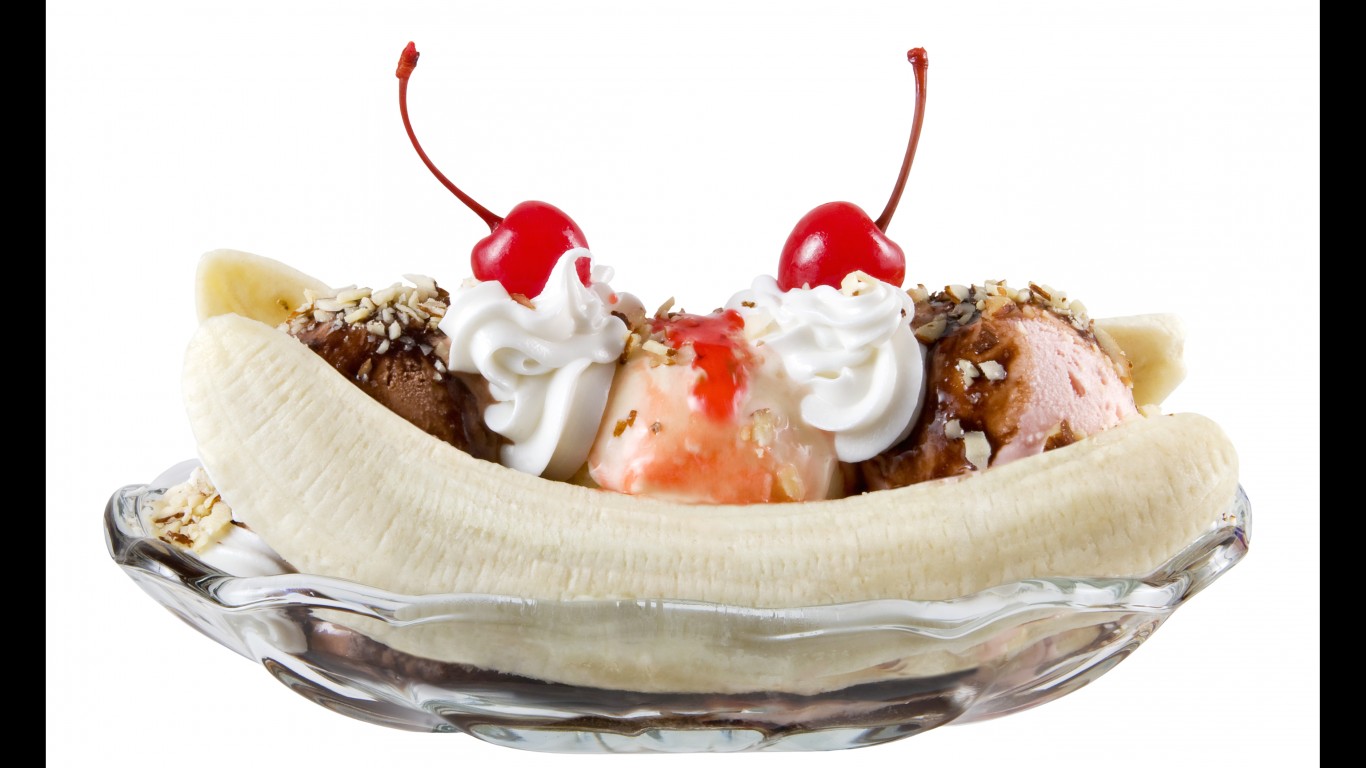
Banana Split
Historians generally attribute the invention of the banana split to an optometrist in Latrobe Pennsylvania who wanted to create a special sundae to serve in his pharmacy. Invented in 1904, these elaborate ice cream treats were ubiquitous at soda fountains in the 1950s and remain an iconic piece of Americana.
Berger Cookies
Famous in Baltimore, Berger cookies were invented by two German immigrant brothers who emigrated to Maryland in 1835 and opened a string of bakeries. The cake-like cookies are mounded with chocolate frosting, and are still made at a bakery originally owned by the Berger family, now called DeBaufre Bakeries.
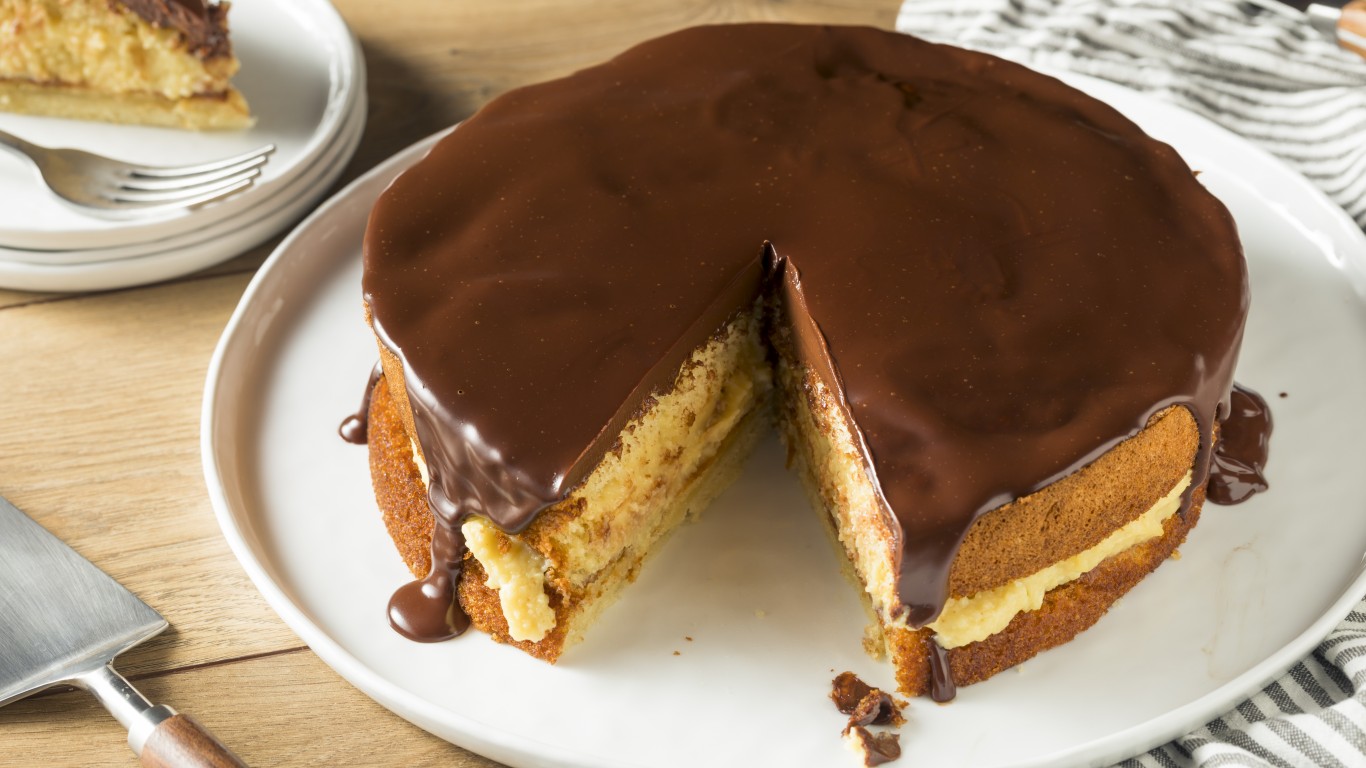
Boston Cream Pie
Created at Boston’s famous Parker House hotel in the latter 19th century, Boston cream pie is not really a pie, but rather two layers of sponge cake filled with a thick vanilla custard and topped with chocolate sauce. This classic cake inspired a popular doughnut flavor, and is the official state dessert of Massachusetts.
Buckeyes
No candy says Ohio like the buckeye – a peanut butter fudge ball partially dipped in chocolate that bears a striking resemblance to the buckeye nut that grows on Ohio’s state tree. These confections are often homemade and enjoyed at celebrations and football games in the Buckeye State.
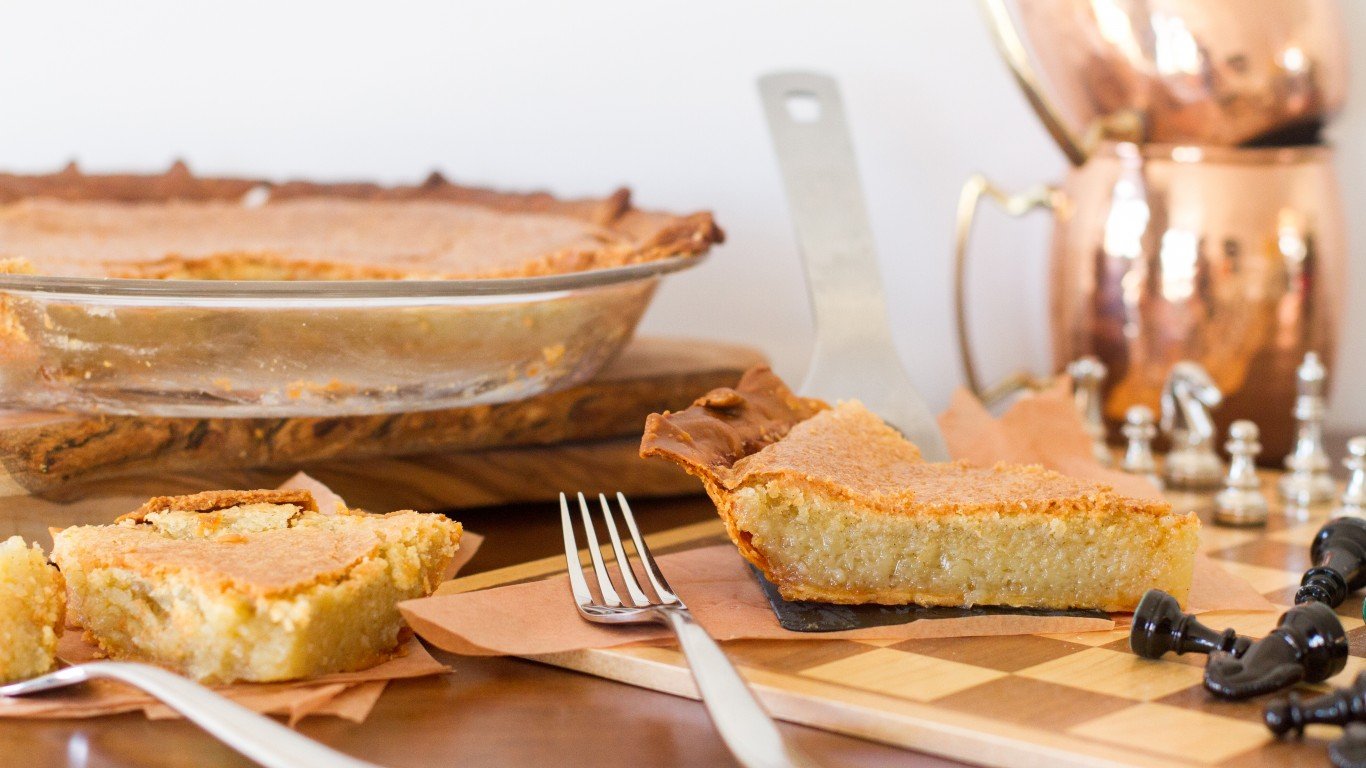
Chess Pie
Chess pie is a classic Virginia dessert. The first chess pie recipe (under the name “transparent pudding”) came from an 1824 cookbook called “The Virginia Housewife.” The pie is characterized by a thick custard filling often containing cornmeal, buttermilk, eggs, and butter. Vanilla flavor is customary, but lemon, chocolate, and coconut chess pies are also common.
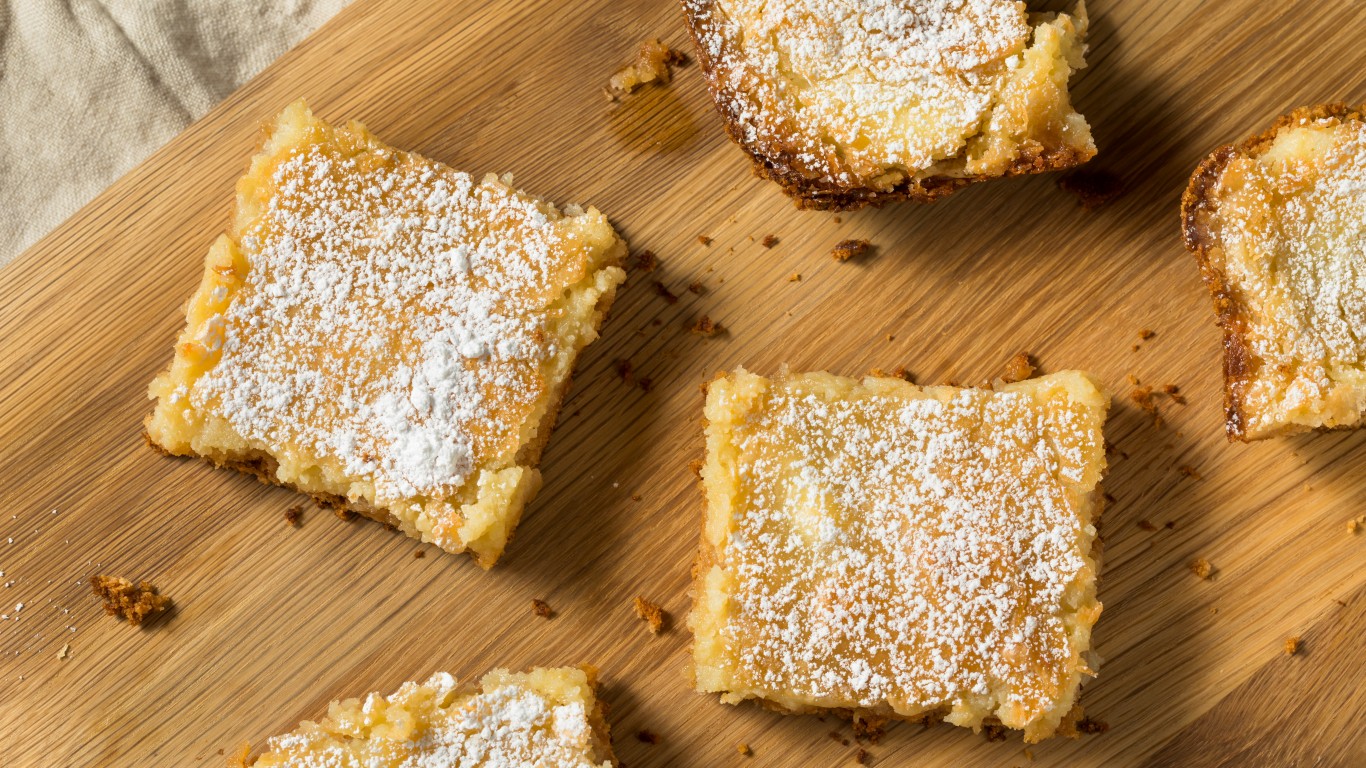
Gooey Butter Cake
With origins in Depression-era St. Louis, gooey butter cake was a regional Missouri treat until celebrity chef Paula Deen introduced a variation of the recipe to a national audience. Although purists insist that the cake be made from scratch with a yeasted dough, recipes involving boxed yellow cake mix and cream cheese have become the norm. Whatever the recipe, this dense, sticky cake bar is always made with loads of butter.
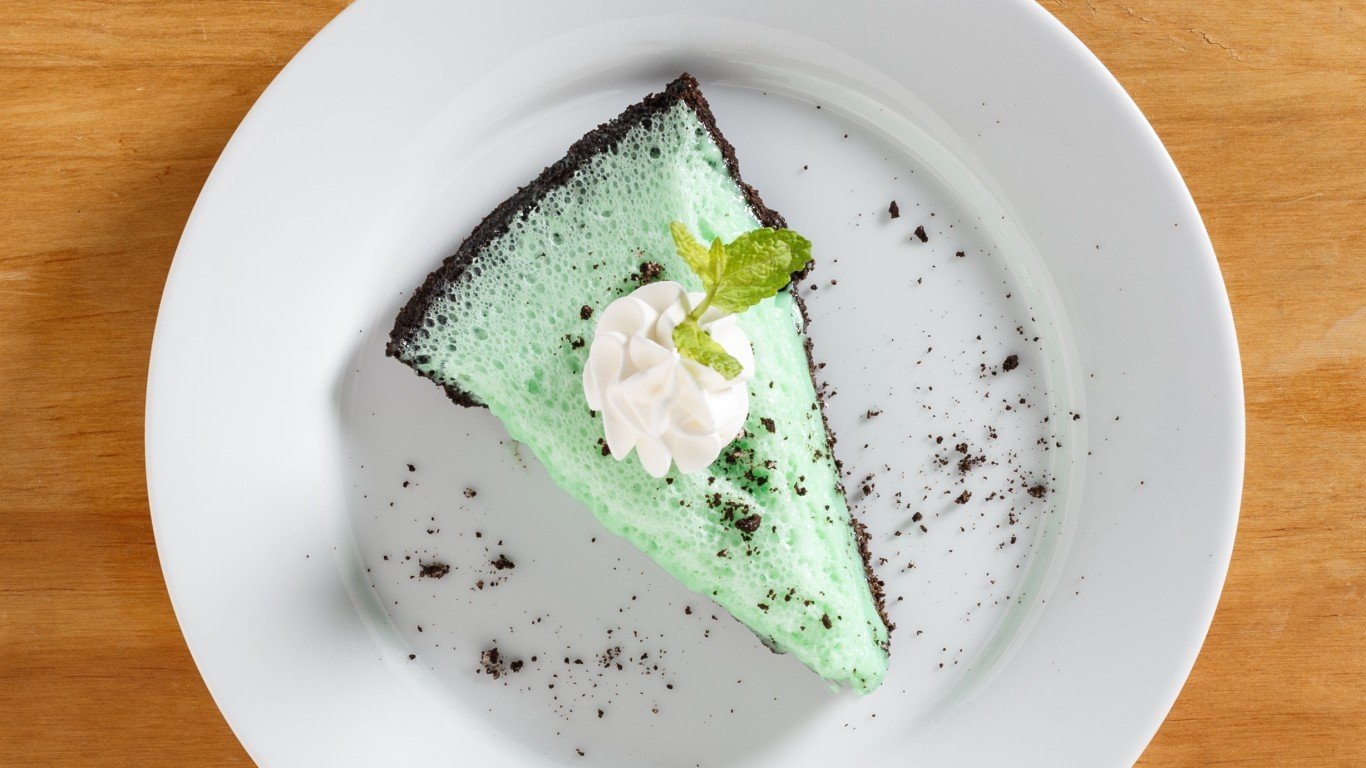
Grasshopper Pie
Designed in the ’50s when gelatin desserts were all the rage, the grasshopper pie has a chocolate cookie crust and a mint green filling mounded with piles of whipped cream. It’s most popular around St. Patrick’s Day and Easter due to its vibrant color.
Hermits
These classic New England spice cookies were likely invented in the Lake Champlain area. The first printed recipes appeared in separate cookbooks in 1880, and call for raisins, nutmeg, cloves, and cinnamon, while modern recipes often include walnuts.
Key Lime Pie
The key lime – a smaller, seedier lime with more acidity and flavor than the common Persian lime variety – is named for the Florida Keys and used to flavor the official state pie of Florida. Key lime pie often comes with a graham crust and has a creamy filling made of sweetened condensed milk, egg yolks, and key lime juice.
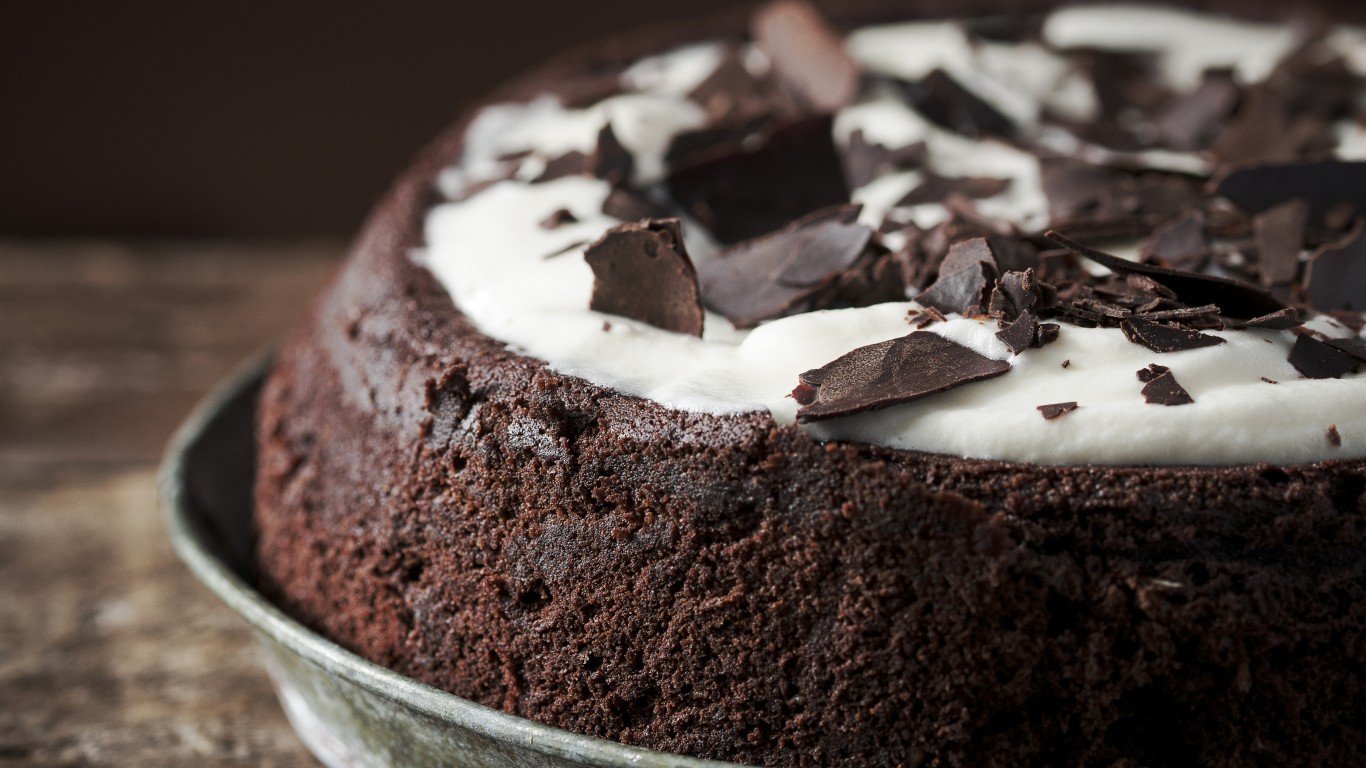
Mississippi Mud Pie
Although its origins are murky, the name of this decadent chocolate pie is a clear reference to the dark, muddy banks of the Mississippi River. Mississippi mud pie comes in many varieties, usually with a chocolate cookie crust holding fillings including chocolate pudding, whipped cream, marshmallow, ice cream, liqueur, and pecans.
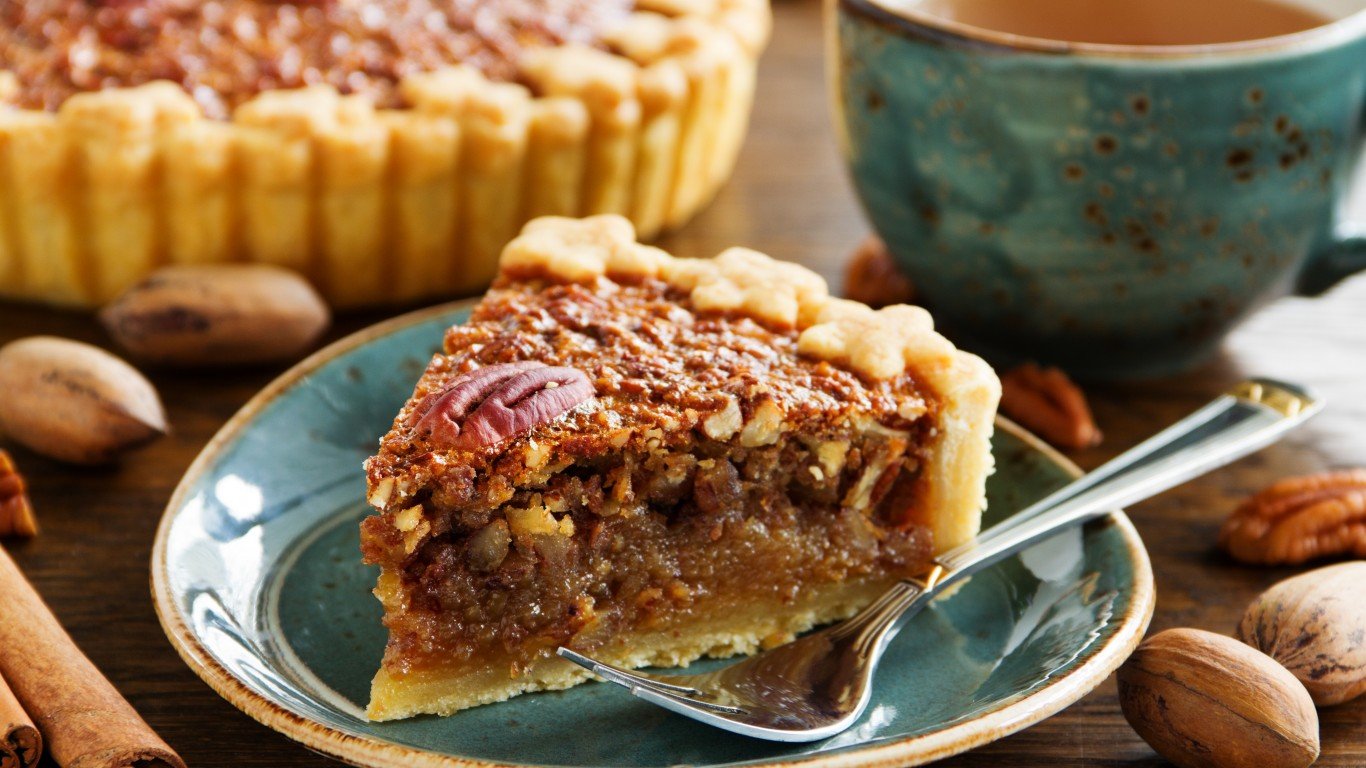
Pecan Pie
Pecans are one of the only tree nuts native to North America, and have been used in American desserts for centuries. The first pecan pie recipe appeared in Harper’s Bazaar in 1886. With a gooey corn syrup-based filling and a flaky crust, this tooch-achingly sweet pie is the official state pie of Texas.
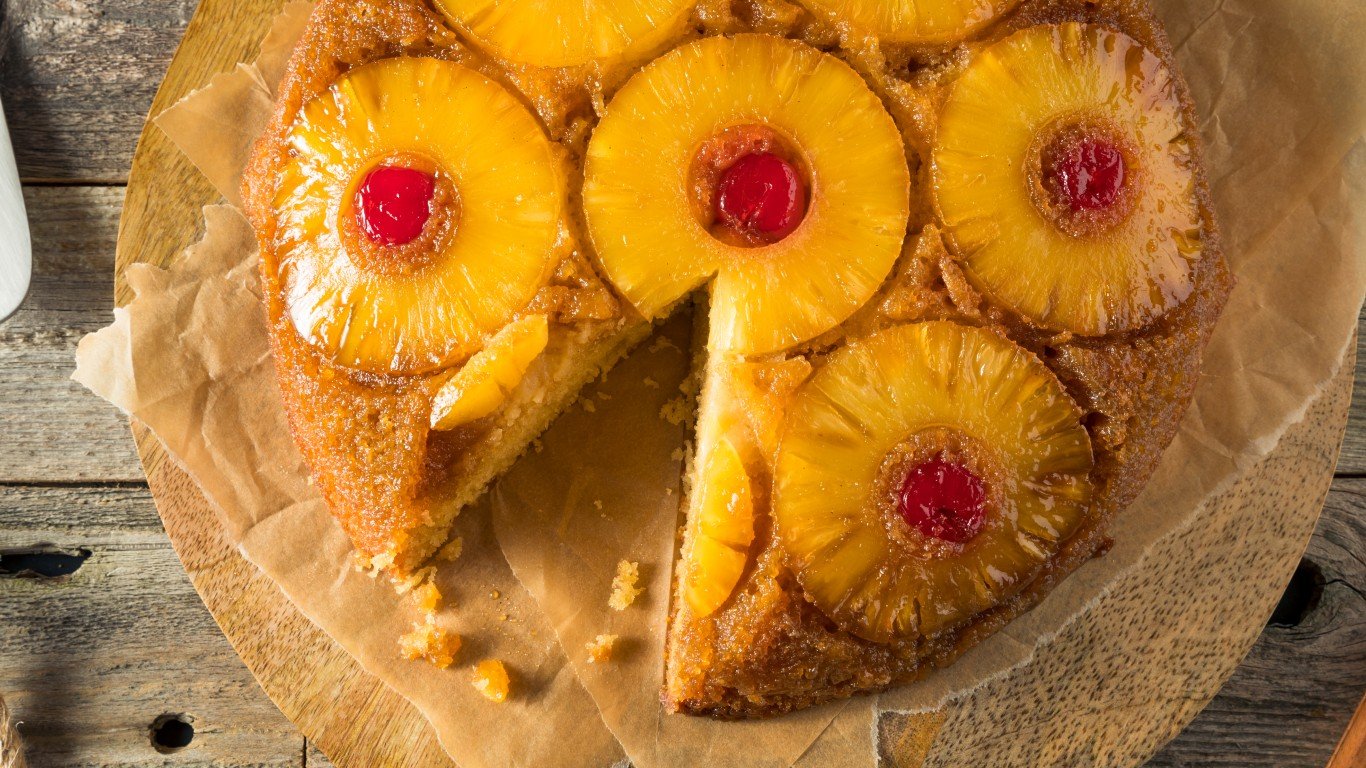
Pineapple Upside-down Cake
This cake was trendy in the 1920s, when pineapples were still an extravagance in the U.S., then became mainstream in the ’50s and ’60s. Any American whose mom ever baked a cake at home has probably had some version of a pineapple upside-down cake.
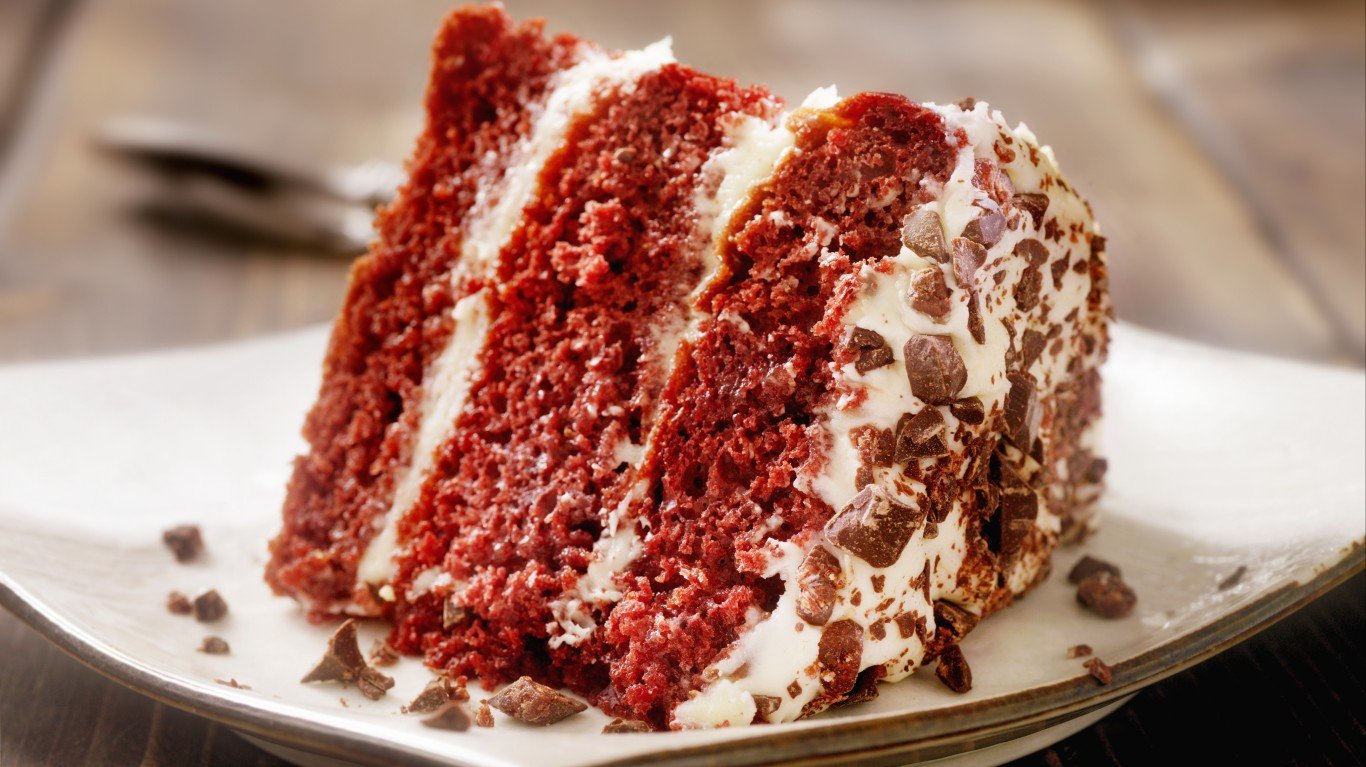
Red Velvet Cake
Although multiple companies claim to have invented the red velvet cake in the 20th century, including the Waldorf Astoria hotel, it has been around since at least the mid 19th century. Originally red due to a chemical reaction between cocoa powder and acid, the cake was also colored with beet juice for a time, and is now colored with red food coloring. No matter its origin, it has become a daily staple at Southern bakeries.
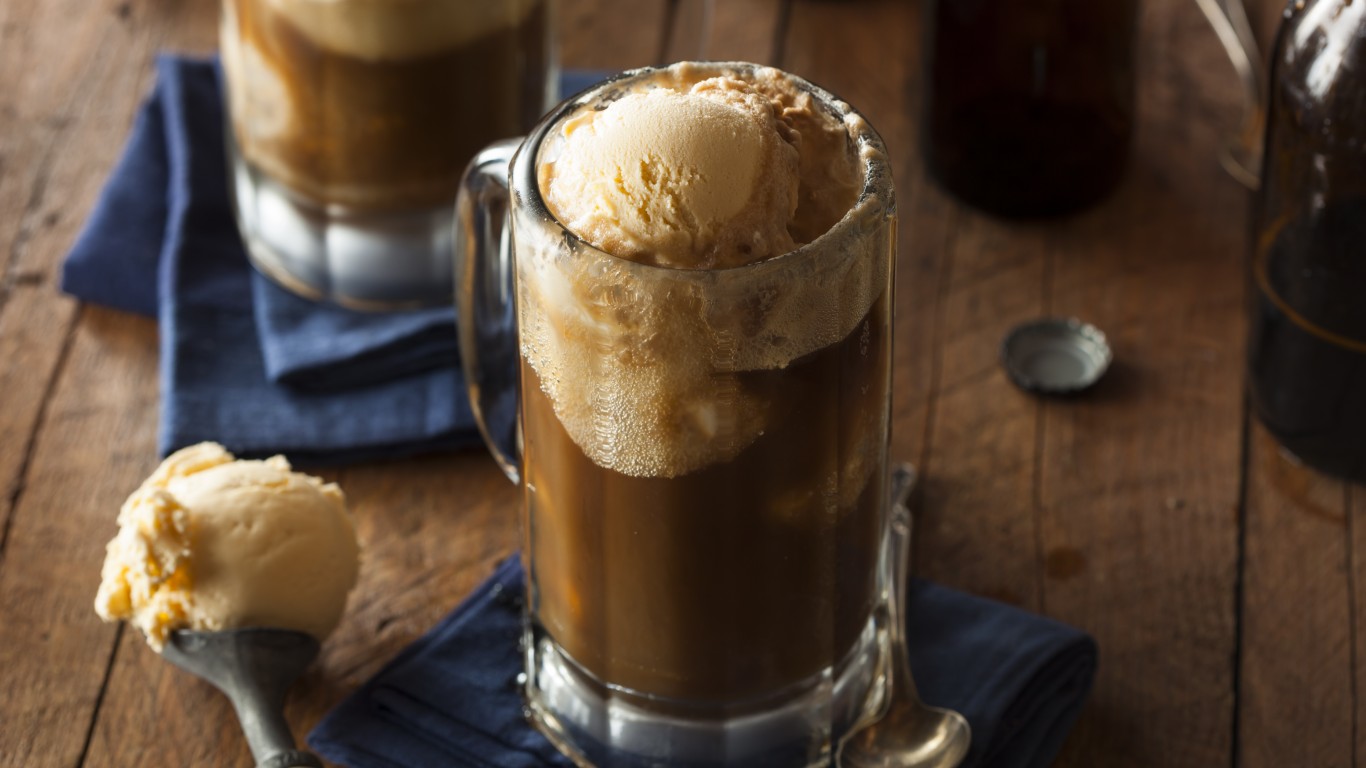
Root Beer Float
Originally called a “black cow,” the root beer float was invented by bar owner Frank Wisner in Cripple Creek, Colorado in 1893. Root beer isn’t widely available outside of North America, so these ice cream and soda concoctions are hard to find elsewhere.
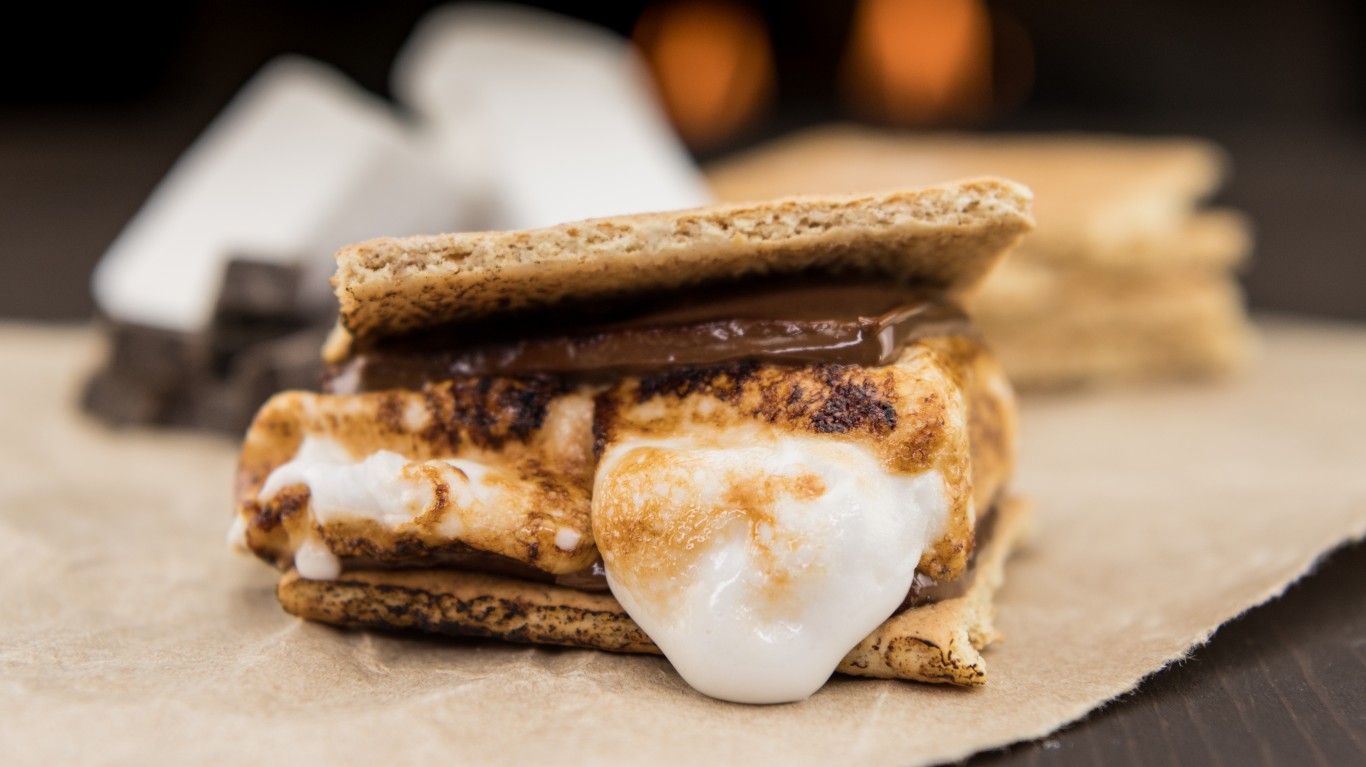
S’mores
Popular at campfires, these ultra-sweet treats first appeared in print in a 1927 Girl Scout guide. Graham crackers, an essential part of the s’more sandwich, are not popular outside of the U.S., making smores a particularly American DIY dessert.
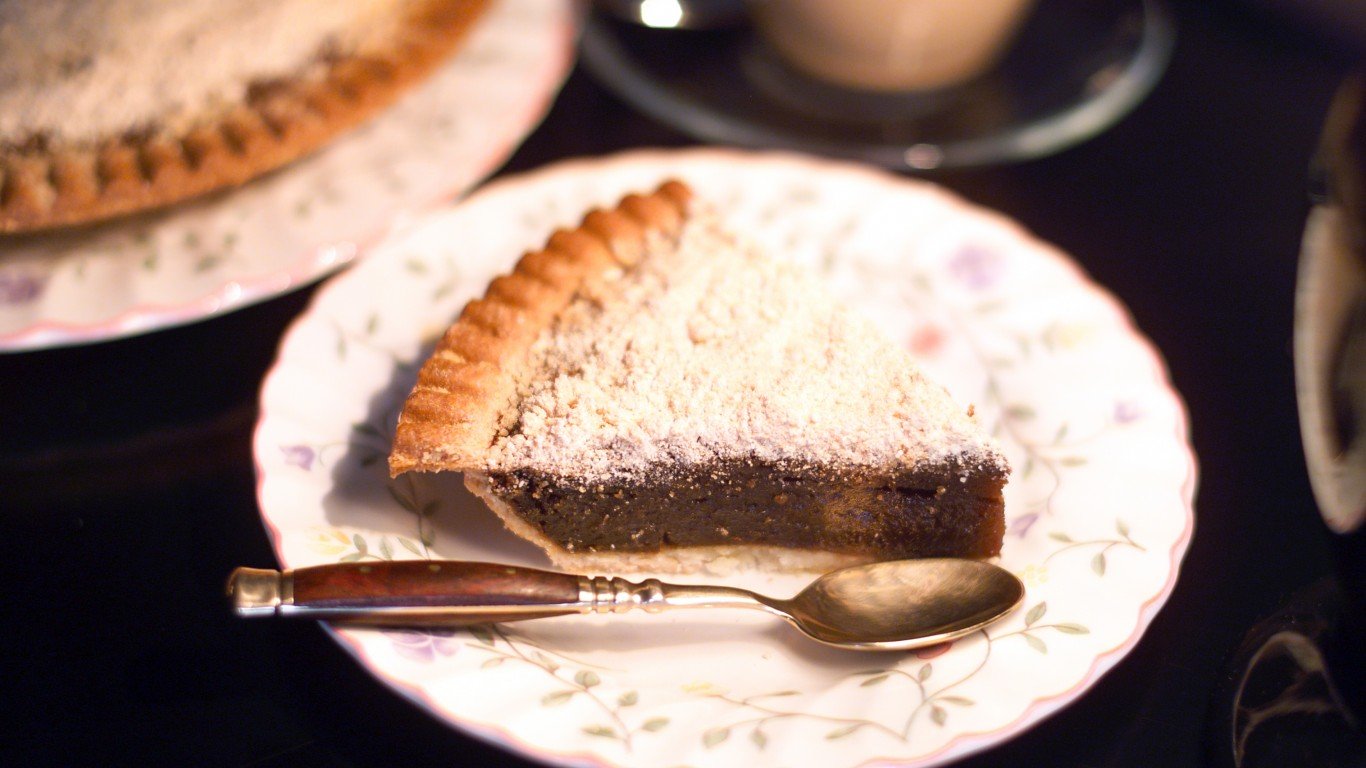
Shoofly Pie
A molasses pie with a crumb topping, shoofly pie has been around since the late 19th century, when it was crustless and eaten for breakfast as a coffee cake. It is a staple of Pennsylvania Dutch cuisine, and its modern name is likely taken from the Shoofly Molasses brand from Philadelphia.
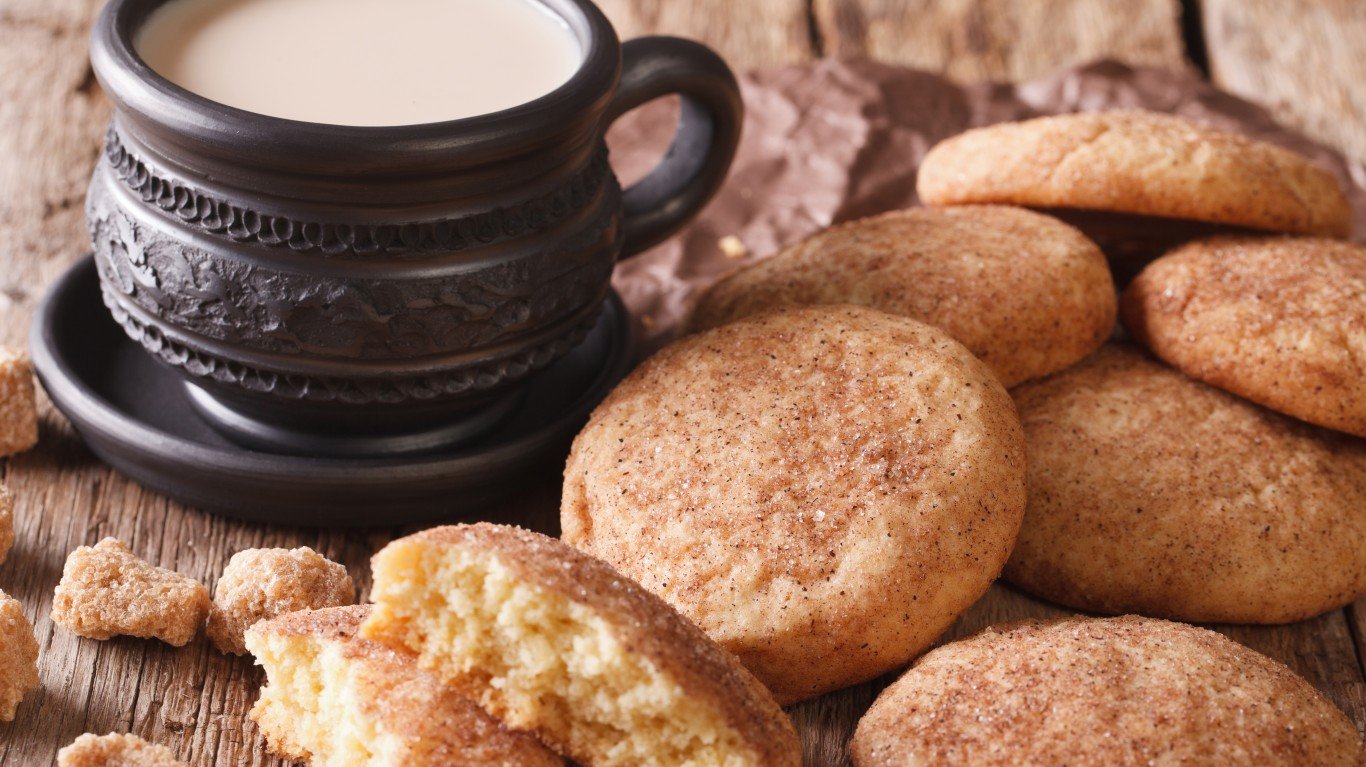
Snickerdoodles
These crackle-topped cookies rolled in cinnamon sugar are the state cookie of Connecticut. Their name may have been passed down by German immigrants, as a derivation of “schneckennudeln” (a type of cinnamon roll), but some sources claim it comes from a New England tradition of whimsical cookie names. Although their etymology is debatable, they have been a New England favorite for over a century.
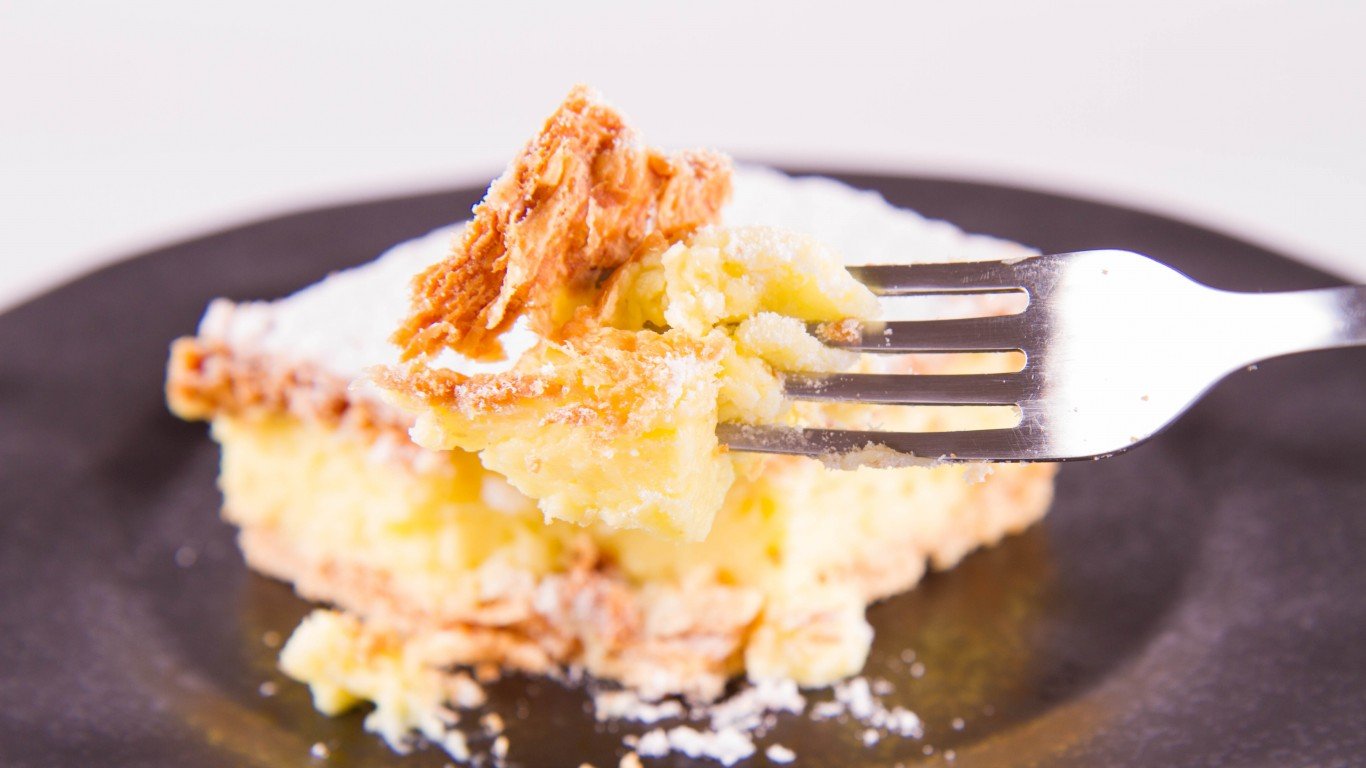
Sugar Cream Pie
Sugar cream pie, or Hoosier pie, was dubbed the unofficial state pie of Indiana in 2009. Most likely introduced to the area by Quaker settlers in the early 1800s, this single-crust custard pie uses ingredients likely to be on hand, including cream, flour, sugar, and butter, and comes dusted with nutmeg.
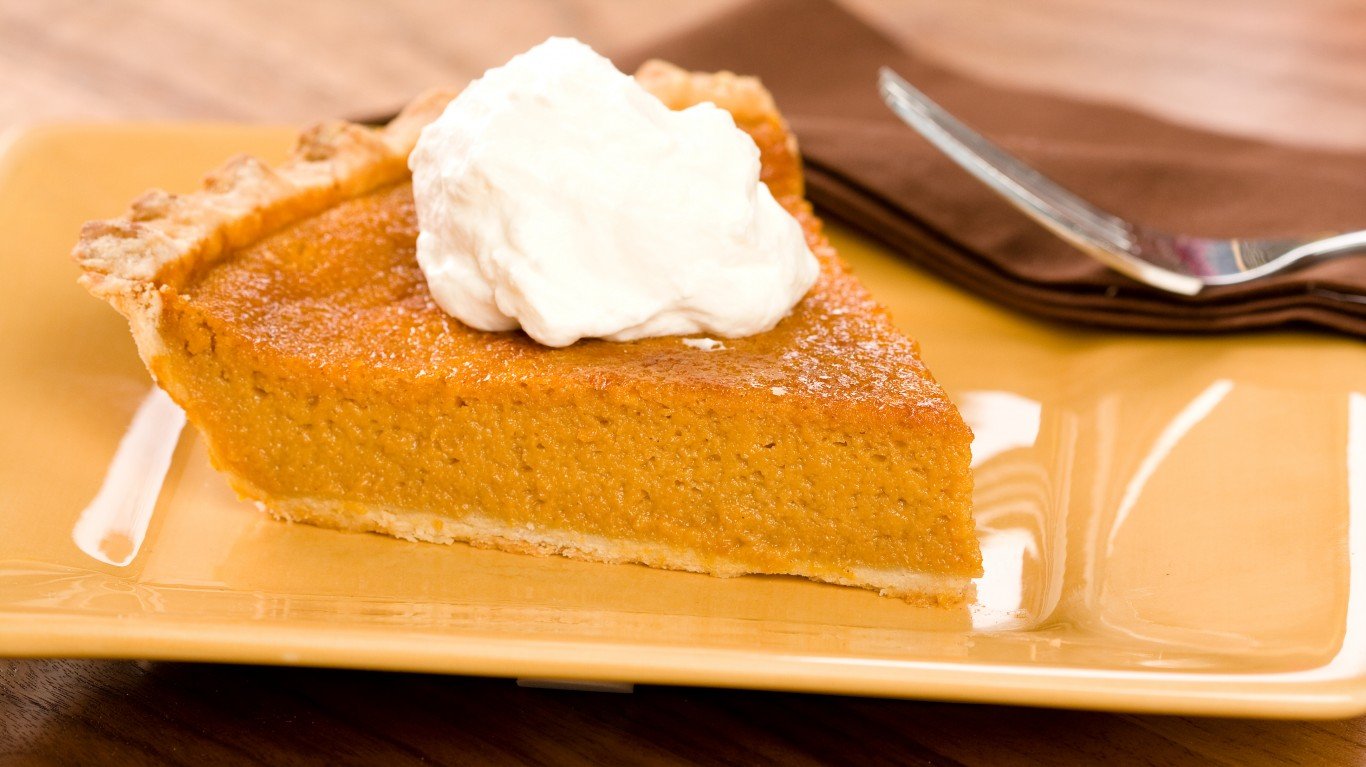
Sweet Potato Pie
Sweet potato pie has long been a Southern tradition with roots in West African cuisine. With a flaky single crust and a custard filling, sweet potato pie not only replaces pumpkin pie during holidays in many Southern homes but is also enjoyed year-round.
Watergate Salad
This fluffy combination of whipped topping, pistachio pudding mix, canned pineapple, and mini marshmallows may be named after the Watergate hotel, but there’s no evidence that it was ever served there. Popular at family cookouts and holiday parties, Watergate salad is a quick and easy, no-bake, one-bowl standby.
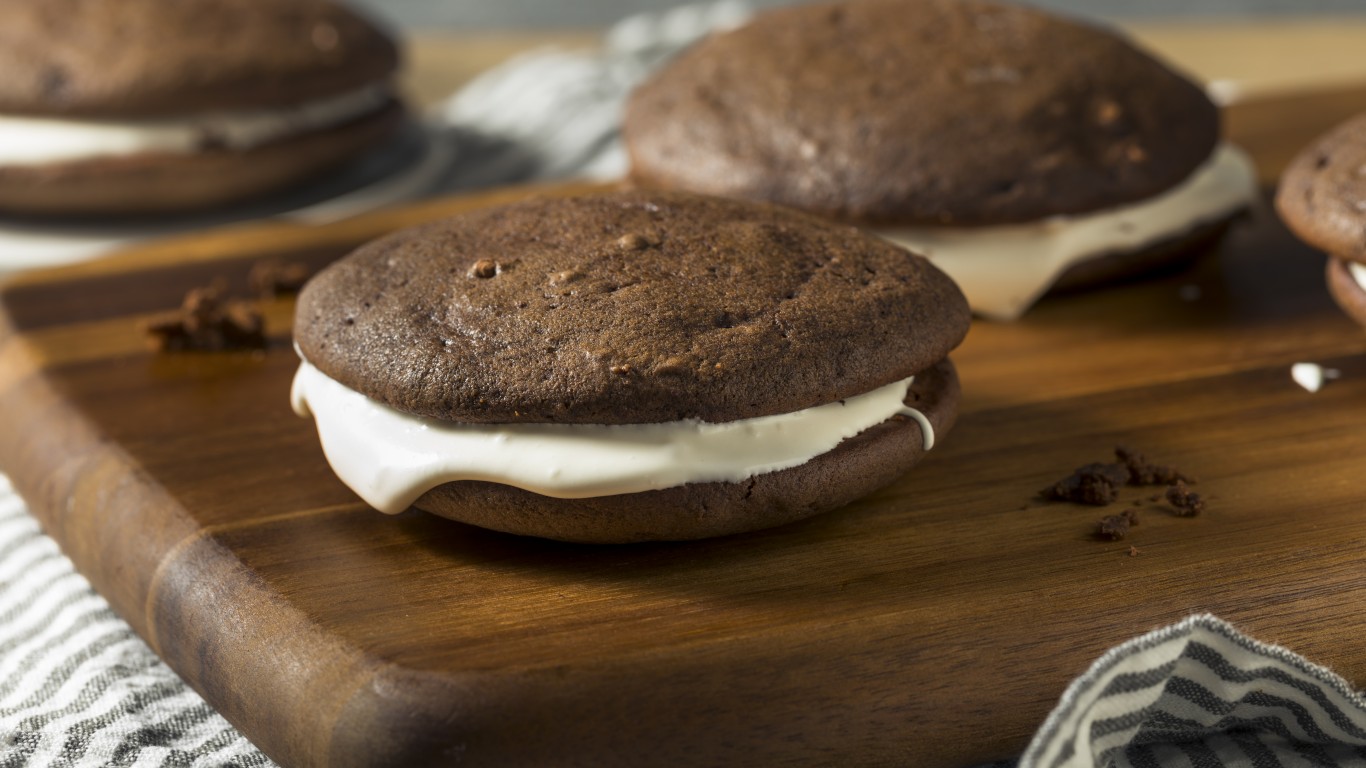
Whoopie Pie
These whimsical treats resemble a cookie sandwich, with cake-like layers around a creamy filling or frosting. Chocolate whoopie pies with vanilla filling are traditional, but flavors such as pumpkin with cream cheese, chocolate with peanut butter, and red velvet are also common. Several states lay claim to the invention of the whoopie pie, including Pennsylvania and Maine.
